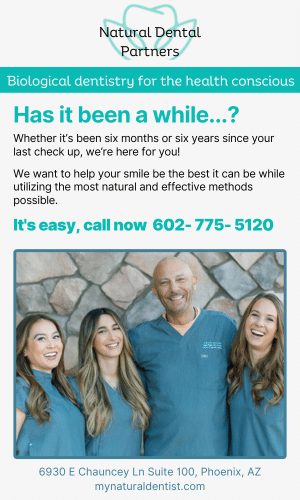Phoenix is ground zero for extreme heat.
That’s the conclusion of Pope Moseley, a research professor in Arizona State University’s College of Health Solutions.
For more than 30 years, Moseley, a lung and intensive care physician, has led National Institutes of Health-funded research groups focused on heat-related illness.
He said Phoenix, with its urban heat islands and sustained high summer temperatures, is “the best natural laboratory that exists anywhere.”
“What urbanization has done in Phoenix, its rise of high low temperatures, outstrips any city that we’ve ever looked at,” Moseley said. “This is a major metropolitan area with a massive rise in the temperature markers that determine human illness.”
Moseley and Marisa Domino, a professor in the College of Health Solutions, are conducting research using hospital and population data to make the public aware that more people are impacted by heat than those suffering common heat-related illnesses such as heatstroke.
They plan to publish a paper on their research and, hopefully, develop an app that will help people better understand their health vulnerabilities during extreme heat periods.
Question: What is the current research you and Marisa are doing?
Answer: By looking at population data and seeing which groups of chronic conditions or diagnoses seek medical help, we can figure out heat vulnerability related to the diagnoses people already have. Most of the people who go to the hospital during a heat wave do not go because of heatstroke or heat illness. That’s less than 10% of the illnesses.
For example, bloodstream infections go way up in a heat wave. Suicides go up 1–2%. Hospitalization for dementia goes way up. Hospitalization for heart attacks goes up. As temperatures go up, drug overdose deaths go up. So, If you tell me 200 people got sick, I’m going to say, “No, 2,000 people got sick. We just didn’t recognize it.”
Data from population studies in Sweden have shown that for every heat wave day, you have an 8–12% increase in overall mortality. Heat is a real force multiplier of the illnesses and chronic conditions that we have. Our job in the College of Health Solutions is to put together the data to allow policymakers to plan and manage what’s going to happen during a heat wave.
Q: What you’re saying is there are far more people vulnerable to heat-related illnesses than might be commonly thought of?
A: Yes. My prior research group at the University of Copenhagen published extensively on the use of population data to understand how diagnoses or chronic conditions relate to each other and can help predict the likelihood of an outcome from a new illness. If, for example, we have a power interruption during a heat wave, we need to know which kinds of medical conditions will need medical help.
A lot of people are likely going to need medical help in that situation, and it’s important to know what medical conditions are most vulnerable.
It’s very different if we’re going to have 100,000 people with emphysema or 100,000 people with kidney failure. We need to be able to have the systems ready to deal with that and actually try to help individuals figure out what their risk is.
Q: What do you consider a heat event?
A: So, a lot of the heat event data was built out of what was important to keep military recruits from getting sick. That has no bearing on a 70-year-old with heart failure and a couple of heart attacks. We are also working with climate scientists trying to look at disease occurrence during the year and use that information to build models of climate conditions associated with illness. For heat, it’s not necessarily how hot it gets, it’s how long it’s hot.
If you go to Death Valley right now, the lows are probably going to be in the mid-80s. If you’re in Phoenix for the next 10 days, our low temperatures are going to be around 90. If you ask me, as an intensive care physician, which one scares me more, it’s Phoenix. There is pretty good population data from the European heat waves in 2003 showing that it wasn’t the high temperatures, but how long it was hot. That means that the area never cooled, as we see in Phoenix right now.
Q: What’s the goal of your research and how might you apply it to help people understand their vulnerability during a heat event?
A: The goal is to provide some sort of actionable knowledge and put together a model of the high-risk person. It’s the same approach we take in cancer therapy. We want to know individual risk of being outside in the heat.
When you do a group study and the results say that the average was a 10% increase in some factor, well, that’s a 10% increase in an average person. There are no average people. If you’re a cancer patient and the doctor tells you, “Well, the average patient has a certain outcome,” you don’t care. That means nothing to you. You want to know the likely outcome for you as an individual. You want to know how heat will affect you, not some mythical average person. That’s the precision medicine of heat.
Q: So, how would you disseminate that information to people?
A: Where we’d like to go is to create a climate app. You input your own health data into your app, and it could tell you your risk of being outside for an extended period of time; your risk of going to the hospital is this; this is your percentage of risk of dying. We should be able to do this for any individual. So somebody with a certain set of chronic conditions knows that when it gets to a certain temperature, they’re more susceptible. That’s where we need to go with this research.
Read more Health and Wellness articles on Green Living.







